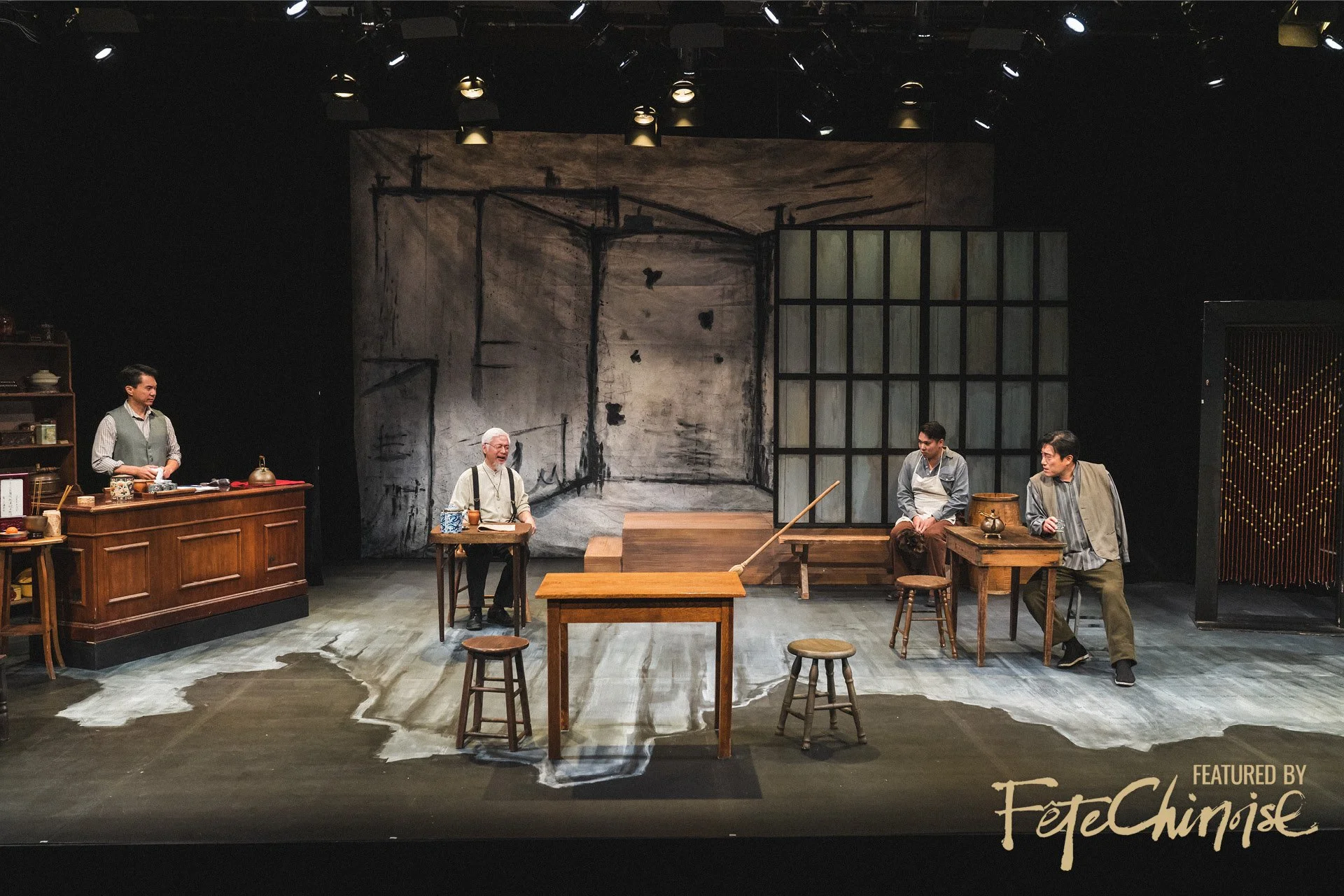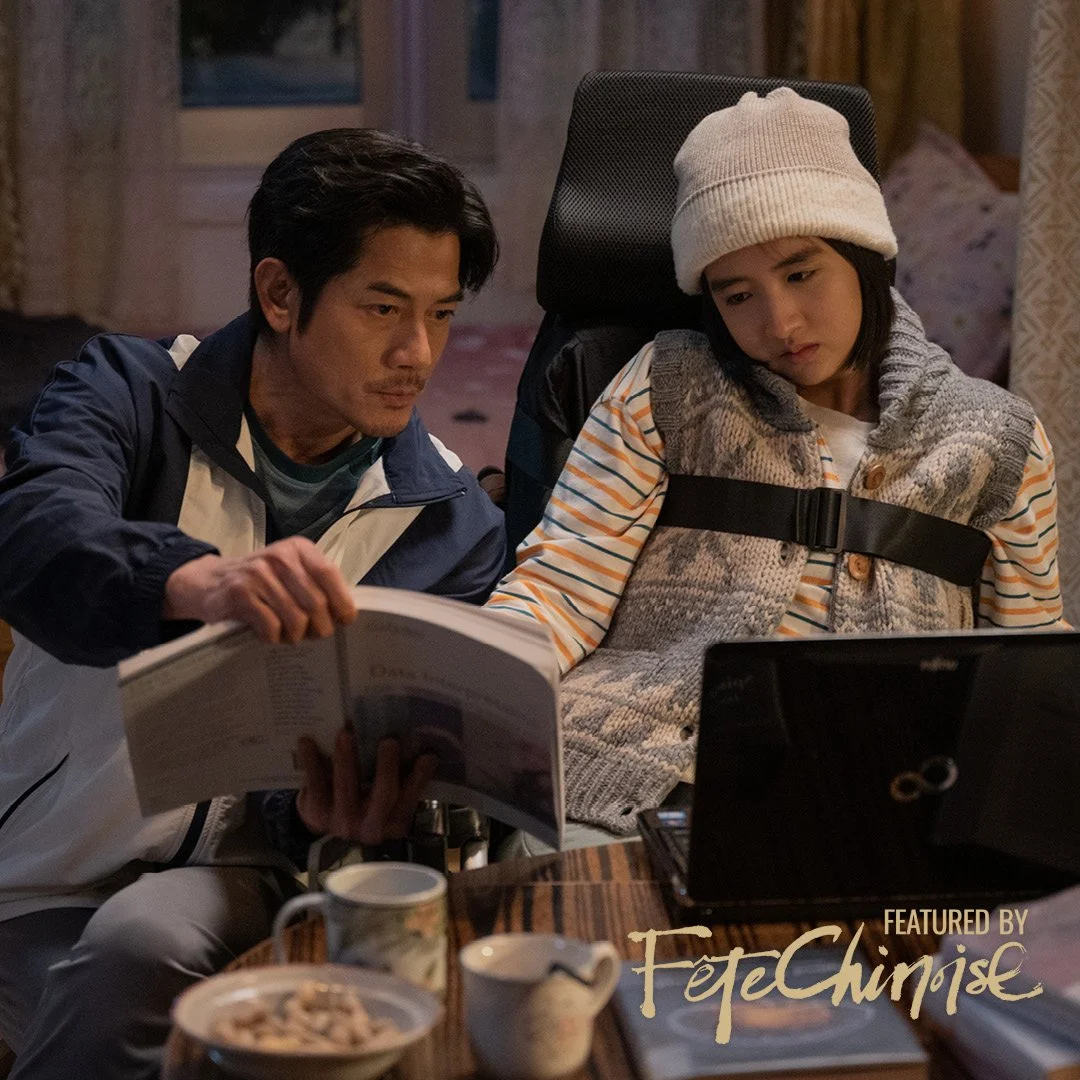Bachelor Man: A Reflection on Chinese Canadian History and Gender
Written by Maggie Ho
Images courtesy of Tarragon Theatre
Now running until September 14, 2025 at Tarragon Theatre
Produced by Renaissance Canadian Theatre in association with Tarragon Theatre, Bachelor Man unfolds an important historical era that resonates with the Chinese Canadian experience. As Artistic Director Andrew Moodie noted in his opening remarks, the company’s commitment to reviving overlooked works is meaningful, not only as preservation but also as a way to highlight narratives often absent from mainstream theatre. First premiered in 1987 at Theatre Passe Muraille, the play now returns to Tarragon, offering today’s audiences a rare opportunity to explore a chapter of history that many may not know.
The story is set in Toronto on Dominion Day, July 1, 1929. Six years earlier, the Canadian government passed the Chinese Exclusion Act, halting immigration and leaving thousands of men separated from their wives and families. Against this backdrop, six bachelors gather in a Chinatown teahouse to reflect on their struggles. Act One paints a bleak yet tender picture of men who work tirelessly but live in isolation, deprived of family warmth and dignity. Their conversations reveal not only the weight of injustice but also the portrait of a community increasingly confined to Chinatown and left at the margins of Canadian society.
Act Two brings a shift with the arrival of Queenie, who challenges the men’s entrenched patriarchal values. Through her exchanges with the bachelors, the play confronts hypocrisy and traditional hierarchies: women longed for yet dismissed, sons celebrated while daughters are devalued, and women referred to as “rice cookers” or subjected to foot binding to limit their roles domestically. Sex workers who once gave comfort to men were scorned and disrespected. These moments expose painful realities that remain recognizable across generations.
The performances anchor the production with emotional strength. Sean Baek’s Kao, a one-armed miner born in the United States and scarred by both physical loss and systemic injustice, is powerful and deeply human. Brenda Ko reprises her role as Queenie from the 1987 production, embodying the character with weary wisdom and fierce defiance. Ziye Hu delivers a delicate, understated portrayal of a homosexual Chinese man, handling the role with care and nuance.
While thematically rich, the production could benefit from further refinement. The shadowy female silhouette singing between scenes, though evocative, leans toward cliché, reminiscent of Madame Butterfly, and the lyrics are often difficult to hear. Props such as the teahouse menu and ancestral shrine, as well as costumes, would gain from greater historical authenticity. Stronger use of projection and lighting could heighten contrasts, such as the festive parade outside versus the stifling teahouse within. Key dramatic moments, including the announcement of a death, could be staged with more intensity. There is room to further connect the production with contemporary reflections.
Overall, Bachelor Man is a decent production that carries important historical weight. It amplifies voices silenced by laws and traditions while creating space to confront difficult truths about gender, race, and belonging. With further refinement and more opportunities to be re-staged, the play has the potential to grow in impact and offer contemporary audiences a stronger connection to this significant chapter of Chinese Canadian history.
Bachelor Man is now playing at the Tarragon Theatre until September 14. For tickets, visit Tarragon Theatre website.
Special Offer for Fête Chinoise Readers: Use discount “Bachelor888” to enjoy 30% off regular tickets!




















Fans of the classic TVB series A Step into the Past have long awaited this moment, and it’s finally here! Back to the Past is the highly anticipated cinematic sequel that brings the beloved characters and thrilling storylines of the original 2001 series to the big screen.